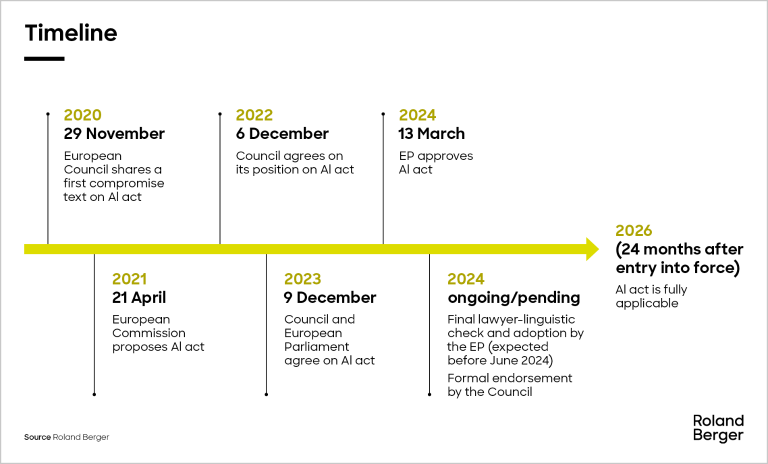Three examples of how the EU AI act may impact different industries
Healthcare: AI medical solutions in the EU are regulated under the Medical Devices Regulation (MDR) and In-Vitro Diagnostic Medical Devices Regulation (IVDR). The proposed EU AI Act will subject certain AI healthcare applications to strict regulations, especially those deemed high-risk. Clear guidelines are needed to help manufacturers navigate compliance with both existing medical device regulations and the forthcoming EU AI Act.
Financial services: In financial services, AI-powered assessments of creditworthiness, pricing, or risk may face tighter regulations in the future due to their potential high-risk nature. Stricter norms would ensure fairness, transparency, and compliance with laws, aiming to protect consumers and maintain market stability.
Automotive: The EU AI Act could offer clear legal guidelines for autonomous driving, defining roles and responsibilities for manufacturers, developers, and operators. This could simplify regulations for the technology. However, it would also bring new requirements, such as safety standards and ethical AI guidelines, which manufacturers must adhere to.
It is currently unclear whether the EU AI Act will foster or hamper the EU AI industry and the economy at large. Thus far, reactions to the EU AI Act have been varied. While politicians commend its ethical standards, business leaders express concerns about potentially stifling innovation.
Ultimately, the consequences of the EU AI Act will depend on how effectively it balances these opportunities and challenges, and how businesses, policymakers, and society at large adapt to this new regulatory landscape. Success in navigating these complexities could position Europe as a global leader in ethical and responsible AI development while ensuring its competitiveness in the rapidly evolving
AI industry
.
Disclaimer
This article is for informational purposes only and is not offered as professional and legal advice for any specific matter. Professional and legal advice should always be sought before taking any action or refraining from taking any action based on this presentation.
Roland Berger group of companies ("Roland Berger") and the editors and the contributing authors do not assume any responsibility for the completeness and accuracy of the information contained therein and expressly disclaim any and all liability to any person in respect of the consequences of anything done or permitted to be done or omitted to be done wholly or partly in reliance upon the whole or any part of the presentation.
The article may contain links to external websites and external websites may link to the presentation. Roland Berger is not responsible for the content or operation of any such external sites and disclaims all liability, howsoever occurring, in respect of the content or operation of any such external websites.







_image_caption_none.png)






